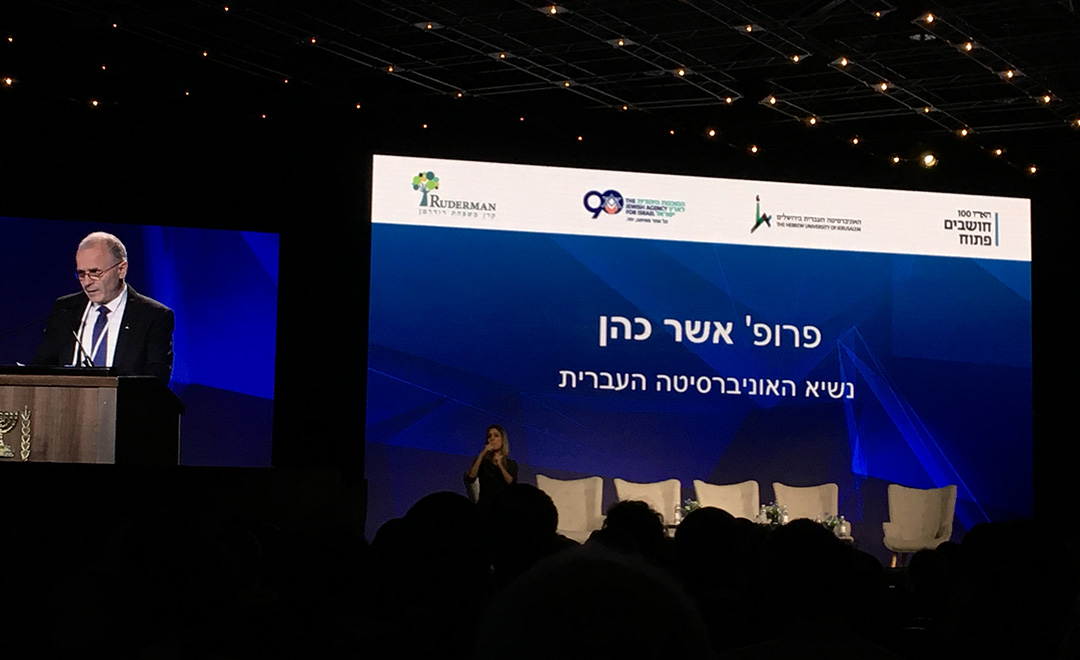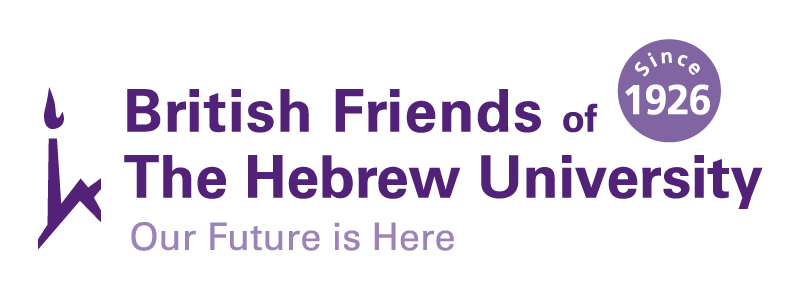Notice: Trying to access array offset on value of type bool in /home/maykdev/public_html/bfhu2020/wp-content/themes/atelier/includes/plugins/aq_resizer-1x.php on line 97
Notice: Trying to access array offset on value of type bool in /home/maykdev/public_html/bfhu2020/wp-content/themes/atelier/includes/plugins/aq_resizer-1x.php on line 98

The Hebrew University, The Jewish Agency, Ruderman Foundation and Haaretz have hosted their first-ever Judaism, Israel and Diaspora Conference. A sold-out crowd of more than 2,000 attendees filled the International Convention Center in Jerusalem.
The conference delved into issues of Jewish identity, Anti-Semitism, and Israel-Diaspora relations. The tone was humanistic in nature and not political. Even Israel’s president Ruvi Rivlin made no mention of the current turmoil in Israeli politics and the lack of a functioning government or ruling prime minister.
Hebrew University President Prof Asher Cohen spoke in the first session. He emphasised higher education’s role in society, namely to keep the doors to knowledge open and accessible to all, “Arab and Jew, man and woman, secular and religious, Israeli and exchange students”. President Cohen also spoke of the university’s strong desire to increase its ranks of ultra-religious students “but not at the expense of segregating our classrooms or teaching staff”. (This line drew applause). In his speech, Cohen quoted the Hebrew University’s founding fathers, who all stressed the acquisition of secular and scientific knowledge as an inherently Jewish value.
Rector Barak Medina spoke on a panel titled “Judaism’s Gatekeepers”. He expressed the need for pluralism as a way to keep Judaism alive, that “aggadah” (homiletic passages in the Talmud) is “a treasure trove for all Jews—secular and religious alike” and should be viewed as “a wonderful and necessary source of universal values and wise council”.
Professor Deborah Lipstadt spoke compellingly about the need for Jews to be motivated “not by what’s being done to Jews (i.e., Pittsburgh, Halle) but by what Judaism and Jews do in the world—actively spreading values of liberty and justice”. She further quipped, “I want us to be motivated not by the oy’s but by the joys of Judaism”. She also cautioned the audience to concern themselves less with anti-Semites and more with the damage we Jews inflict on ourselves because of antisemitism.
In a panel on Anti-Semitism, Professor Manuela Consonni at the Hebrew University’s Department of Jewish History and Contemporary Jewry rejected the overarching claim that all criticism of Israel equals antisemitism but pointed out that we must vehemently reject “any trope that interprets world events, like 9/11 or U.S. foreign policy, as the result of a Jewish conspiracy”.
Both The Jewish Agency’s Isaac Herzog and JFNA president Eric Fingerhut eloquently described how the Israel-Diaspora, and specifically the Israel-North America connection, is much stronger than gets reported in the media. And that we have much more in common than we have that divides us and must remember to listen closely to one another, not belittle our differences, and not be too proud to admit wrongdoing and to simply say, I’m sorry (Fingerhut).
Lastly, French Rabbi Delphine Horvilleur and Israel’s Reform Movement president Rabbi Gilad Kariv spoke of the need to include women and liberal Jews in Jewish communal institutions and sacred spaces. Horvilleur recalled the numerous times she asked whether she has “the legitimacy to speak as a Jewish leader…. They never ask that question of someone who has a beard, one slightly longer than mine.” She further shared that the question of regarding the place of women in Judaism is essential, “because a system that does not make room for women, does not make room for anyone else who is considered an ‘Other’.”
Kariv shared his recent experience at a prayer gathering by Women of the Wall in which they were taunted and prevented from using a Torah scroll. “Polls show the Israel’s Rabbinate does not have a mandate from Israel’s citizens to behave as they do…they use their role in corrupt and coercive ways.” Kariv also called on the Hebrew University to do a better job at pointing out the important role pluralistic Judaism played in Israel’s past, present and future, “which means highlighting not only Chief Rabbi Abraham Isaac Kook’s attendance at the well-documented opening ceremony”, as Asher Cohen reminded the audience in his remarks, but also there in 1925 was Reform Rabbi Philip Magnus.
